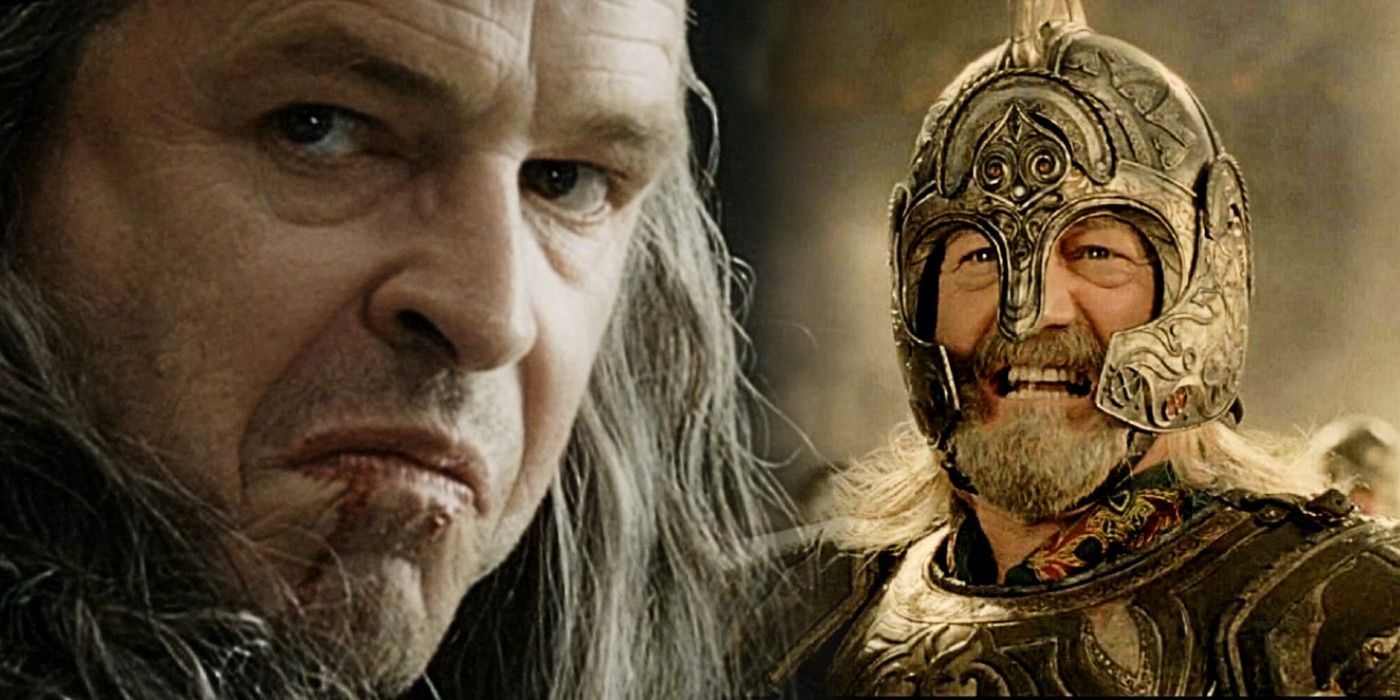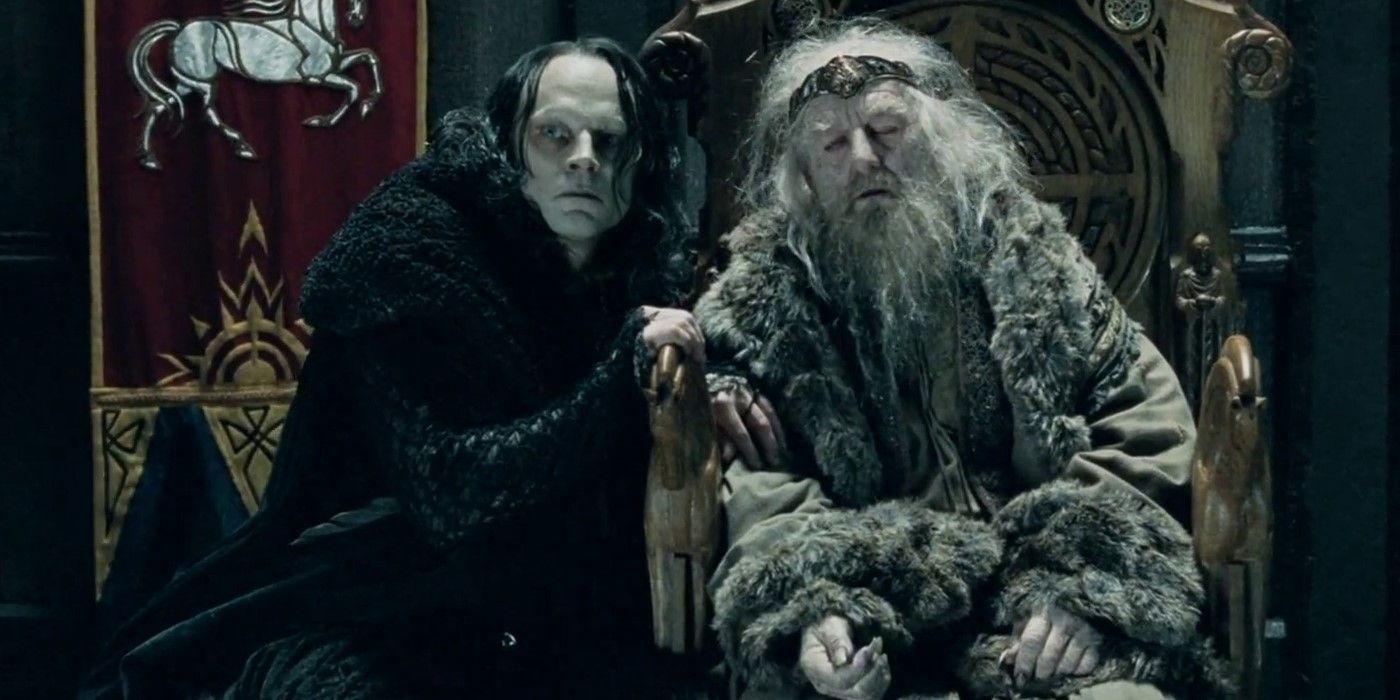In The Lord of the Rings, Sauron took corruption to a catastrophic level with two of Middle-earth's prominent kingdoms of men: Rohan and Gondor. Fortunately, Gandalf was able to free King Théoden's mind in The Two Towers, but the Wizard couldn't help Gondor's steward, Denethor. Some might argue that he made this choice because it cleared the opposition against Aragorn taking the throne, but there's a much sadder reason why Gandalf didn't heal Denethor.
While Saruman was poisoning King Théoden's mind with his minion, Grima Wormtongue, Denethor was listening to the whispers of Sauron himself through the Palantir. After Pippin took a horrifying look into the Palantir, Gandalf got a glimpse at Sauron's plans. He took Pippin with him to Gondor, where they discovered that the steward was clearly suffering madness much more dangerous than the sickness that plagued Théoden.
How Gandalf Healed King Théoden of Rohan
In The Two Towers movie, Saruman comes across Isildur's remains. He wanted the One Ring and believed if he took control of Théoden, he would be able to get it. Between his wizardly power and the influence of Grima Wormtongue, Théoden was hardly in control of his own faculties. So, Gandalf tricked the door guard into letting him keep his staff. After approaching the throne and casting Wormtongue to the side, Gandalf commanded Saruman to be gone. Through his proxy, Saruman laughed, but Gandalf threw off his cloak, revealing his status as a White Wizard (though Gandalf didn't mention his real name). Then, Gandalf performed a full-on exorcism saying, "I withdraw you, Saruman, as poison is drawn from a wound."
While some dialogue was the same in the book, the messaging was different. Tolkien's material doesn't rule out the possibility that Saruman inhabited Théoden, but it was a stretch. Instead, it appeared like Wormtongue (who had likely been some measure of power) had poisoned Théoden's mind and kept him in the dark -- literally and figuratively. In fact, Christopher Tolkien's Unfinished Tales said that Wormtongue had fed Théoden "subtle poisons," which could also be literal or figurative. Either way, when Gandalf arrived, he didn't need to perform an exorcism. Instead, he needed to show Théoden the sunlight and give him undiluted counsel.
Why Gandalf Didn't Heal the Steward of Gondor, Denethor
After Théoden was shown the fault in his ways, he turned back to the light. Denethor, however, was in a much different situation. He was not fed lies by Wormtongue but shown truths and half-truths by Sauron himself. The Return of the King novelization explained Denethor's plight using Gandalf. "In the days of his wisdom Denethor would not presume to use [the palantír] to challenge Sauron, knowing the limits of his own strength. But his wisdom failed; and I fear that as the peril of his realm grew he looked in the Stone and was deceived: far too often, I guess, since Boromir departed. He was too great to be subdued to the will of the Dark Power, he saw nonetheless only those things which that Power permitted him to see. The knowledge which he obtained was, doubtless, often of service to him; yet the vision of the great might of Mordor that was shown to him fed the despair of his heart until it overthrew his mind."
Thus, in Denethor's situation, Gandalf really couldn't do anything. Denethor wasn't possessed by anything, nor was he being fed lies that Gandalf could rectify. The steward of Gondor had looked into the coming night and given up hope. His pride had failed, and despair had overtaken him. Then, when he lost Boromir, all hope was gone. Denethor became a madman without reason, and Gandalf knew that there was no healing his mind. That's why he could heal Théoden and not Denethor -- because Théoden had not given up hope, while Denethor had given into despair.


